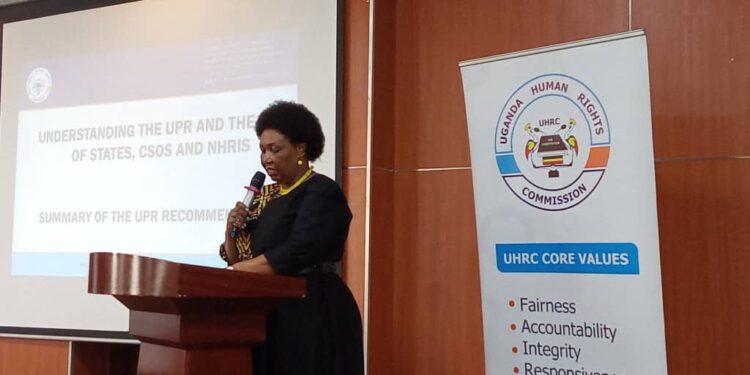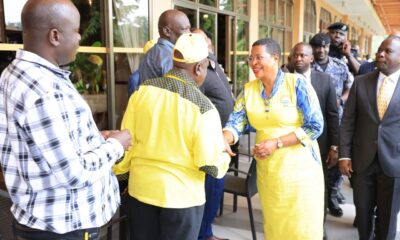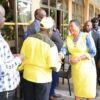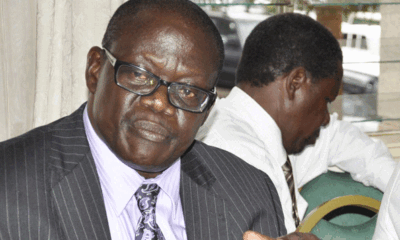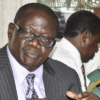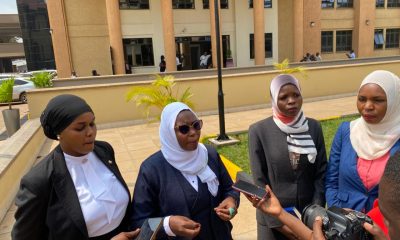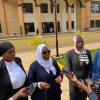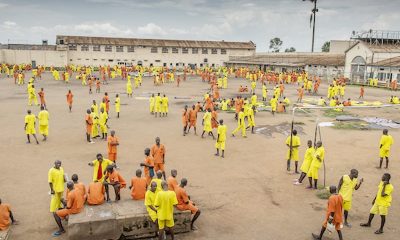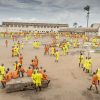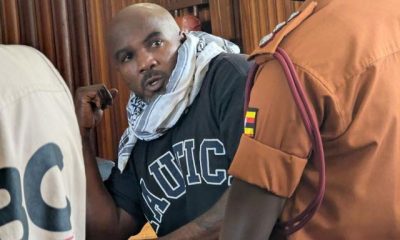Law
UHRC Urges “Honest Reporting” as Uganda Prepares for UN Human Rights Review
Uganda is intensifying its preparations for the upcoming Universal Periodic Review (UPR) before the United Nations Human Rights Council, with the Uganda Human Rights Commission (UHRC) at the forefront of coordinating government agencies and stakeholders. The country is set to present its progress report on the implementation of recommendations from its 2022 UPR cycle.
A crucial national conference, convened recently by the UHRC at Esella Hotel in Kira, brought together a diverse array of participants, including representatives from Civil Society Organizations (CSOs), government ministries and agencies, the Judiciary, Uganda Law Society, and academia. The primary objective of the gathering was to foster collaboration and facilitate the sharing of best practices for developing comprehensive and accurate reports on Uganda’s human rights advancements.
Ms. Mariam Wangadya, Chairperson of the UHRC, underscored the profound significance of the conference. “This national conference is a pivotal platform because it allows us to ask the hard questions, to listen to each other, and promotes corroboration,” Wangadya stated. She emphasized the need for truthful reporting, urging participants to “be honest, highlighting any improvements done. Let’s talk results, lives improved, systems strengthened; let us debunk the lies by telling the stories of positive change which have happened in our domain.”
Wangadya provided an overview of Uganda’s engagement with the UPR mechanism, noting that the country has undergone three cycles: in 2011, 2016, and 2022. She highlighted the statistics from previous reviews: “In 2016, Uganda received 226 recommendations, accepted 148, and noted 78. In 2022, Uganda received 273 recommendations, accepted 139, and noted 134, thus registering an acceptance rate of 51 percent.” While acknowledging that some might perceive this acceptance rate as low, Wangadya emphasized that “numbers alone don’t tell a full story, because behind each recommendation accepted, lies a commitment, behind each commitment there is a policy and behind each policy, a life is potentially transformed.”
The UHRC Chairperson also addressed the critical issue of funding for the commission, stating, “The budget for the commission has seen a moderate increase in the past financial year; moderate is not enough. We need resources, especially during this electoral process that we are entering into.”
Ms. Ruth Ssekindi, Director of Monitoring and Inspection at the UHRC, further elaborated on Uganda’s international human rights obligations. She stressed that the Government of Uganda is accountable not only to its citizens but also to other state parties at the global level on matters of human rights protection. “There are different states which use reports from UHRC on the state of human rights, CSOs, independent experts, and special procedures to assess Uganda’s performance in the human rights field,” Ssekindi explained.
She clarified that the UPR is a crucial UN review mechanism for human rights, conducted approximately every 4.5 years, where each of the 193 UN member states undergoes review by commitment, not by force.
Uganda’s upcoming report to the UN Human Rights Council is expected to highlight several key achievements, including:
- Social Protection: The Senior Citizens Grant has expanded its reach to over 370,000 older persons across Uganda.
- Poverty Reduction: Through initiatives like the Parish Development Model (PDM), the government has invested UGX 2.5 trillion into community-level transformation programs.
- Gender and Disability Inclusion: The national action plan for women on peace and security is actively being implemented in 40 districts.
- Child Protection: Intensified action against child labour and trafficking has resulted in over 2,000 rescue operations and convictions under the Anti-Trafficking in Persons Act.
- Access to Justice: Over 250 paralegals have been trained and deployed in remote regions through a partnership between the Uganda Law Society and the UHRC. Additionally, pre-trial detainees are being fast-tracked for their cases following interventions by the UHRC.
The UHRC and civil society organizations are scheduled to submit their reports by June 25, 2026, with Uganda’s national report expected to be submitted in October 2026.
Comments



